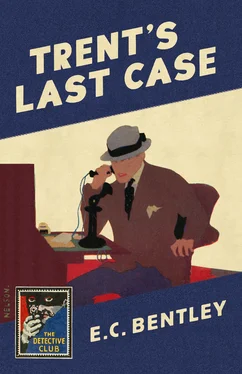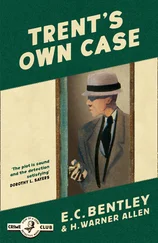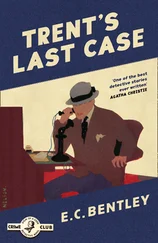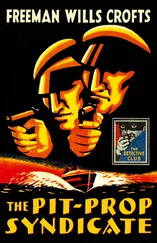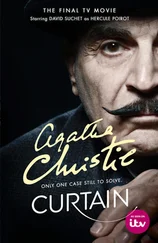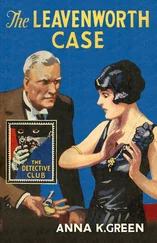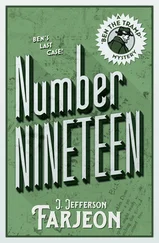Sir James smiled at the telephone—a smile of success. ‘Come, my boy, you’re getting feeble. Admit you want to go and have a look at the case. You know you do. If it’s anything you don’t want to handle, you’re free to drop it. By the by, where are you?’
‘I am blown along a wandering wind,’ replied the voice irresolutely, ‘and hollow, hollow, hollow all delight.’
‘Can you get here within an hour?’ persisted Sir James.
‘I suppose I can,’ the voice grumbled. ‘How much time have I?’
‘Good man! Well, there’s time enough—that’s just the worst of it. I’ve got to depend on our local correspondent for tonight. The only good train of the day went half an hour ago. The next is a slow one, leaving Paddington at midnight. You could have the Buster, if you like’—Sir James referred to a very fast motor car of his—‘but you wouldn’t get down in time to do anything tonight.’
‘And I’d miss my sleep. No, thanks. The train for me. I am quite fond of railway travelling, you know; I have a gift for it. I am the stoker and the stoked. I am the song the porter sings.’
‘What’s that you say?’
‘It doesn’t matter,’ said the voice sadly. ‘I say,’ it continued, ‘will your people look out a hotel near the scene of action, and telegraph for a room?’
‘At once,’ said Sir James. ‘Come here as soon as you can.’
He replaced the receiver. As he turned to his papers again a shrill outcry burst forth in the street below. He walked to the open window. A band of excited boys was rushing down the steps of the Sun building and up the narrow thoroughfare toward Fleet Street. Each carried a bundle of newspapers and a large broadsheet with the simple legend:
MURDER
OF
SIGSBEE
MANDERSON
Sir James smiled and rattled the money in his pockets cheerfully.
‘It makes a good bill,’ he observed to Mr Silver, who stood at his elbow.
Such was Manderson’s epitaph.
AT about eight o’clock in the morning of the following day Mr Nathaniel Burton Cupples stood on the veranda of the hotel at Marlstone. He was thinking about breakfast. In his case the colloquialism must be taken literally: he really was thinking about breakfast, as he thought about every conscious act of his life when time allowed deliberation. He reflected that on the preceding day the excitement and activity following upon the discovery of the dead man had disorganised his appetite, and led to his taking considerably less nourishment than usual. This morning he was very hungry, having already been up and about for an hour; and he decided to allow himself a third piece of toast and an additional egg; the rest as usual. The remaining deficit must be made up at luncheon, but that could be gone into later.
So much being determined, Mr Cupples applied himself to the enjoyment of the view for a few minutes before ordering his meal. With a connoisseur’s eye he explored the beauty of the rugged coast, where a great pierced rock rose from a glassy sea, and the ordered loveliness of the vast tilted levels of pasture and tillage and woodland that sloped gently up from the cliffs toward the distant moor. Mr Cupples delighted in landscape.
He was a man of middle height and spare figure, nearly sixty years old, by constitution rather delicate in health, but wiry and active for his age. A sparse and straggling beard and moustache did not conceal a thin but kindly mouth; his eyes were keen and pleasant; his sharp nose and narrow jaw gave him very much of a clerical air, and this impression was helped by his commonplace dark clothes and soft black hat. The whole effect of him, indeed, was priestly. He was a man of unusually conscientious, industrious, and orderly mind, with little imagination. His father’s household had been used to recruit its domestic establishment by means of advertisements in which it was truthfully described as a serious family. From that fortress of gloom he had escaped with two saintly gifts somehow unspoiled: an inexhaustible kindness of heart, and a capacity for innocent gaiety which owed nothing to humour. In an earlier day and with a clerical training he might have risen to the scarlet hat. He was, in fact, a highly regarded member of the London Positivist Society, a retired banker, a widower without children. His austere but not unhappy life was spent largely among books and in museums; his profound and patiently accumulated knowledge of a number of curiously disconnected subjects which had stirred his interest at different times had given him a place in the quiet, half-lit world of professors and curators and devotees of research; at their amiable, unconvivial dinner parties he was most himself. His favourite author was Montaigne.
Just as Mr Cupples was finishing his meal at a little table on the veranda, a big motor car turned into the drive before the hotel. ‘Who is this?’ he enquired of the waiter. ‘Id is der manager,’ said the young man listlessly. ‘He have been to meed a gendleman by der train.’
The car drew up and the porter hurried from the entrance. Mr Cupples uttered an exclamation of pleasure as a long, loosely built man, much younger than himself, stepped from the car and mounted the veranda, flinging his hat on a chair. His high-boned, quixotic face wore a pleasant smile; his rough tweed clothes, his hair and short moustache were tolerably untidy.
‘Cupples, by all that’s miraculous!’ cried the man, pouncing upon Mr Cupples before he could rise, and seizing his outstretched hand in a hard grip. ‘My luck is serving me today,’ the newcomer went on spasmodically. ‘This is the second slice within an hour. How are you, my best of friends? And why are you here? Why sit’st thou by that ruined breakfast? Dost thou its former pride recall, or ponder how it passed away? I am glad to see you!’
‘I was half expecting you, Trent,’ Mr Cupples replied, his face wreathed in smiles. ‘You are looking splendid, my dear fellow. I will tell you all about it. But you cannot have had your own breakfast yet. Will you have it at my table here?’
‘Rather!’ said the man. ‘An enormous great breakfast, too—with refined conversation and tears of recognition never dry. Will you get young Siegfried to lay a place for me while I go and wash? I shan’t be three minutes.’ He disappeared into the hotel, and Mr Cupples, after a moment’s thought, went to the telephone in the porter’s office.
He returned to find his friend already seated, pouring out tea, and showing an unaffected interest in the choice of food. ‘I expect this to be a hard day for me,’ he said, with the curious jerky utterance which seemed to be his habit. ‘I shan’t eat again till the evening, very likely. You guess why I’m here, don’t you?’
‘Undoubtedly,’ said Mr Cupples. ‘You have come down to write about the murder.’
‘That is rather a colourless way of stating it,’ the man called Trent replied, as he dissected a sole. ‘I should prefer to put it that I have come down in the character of avenger of blood, to hunt down the guilty, and vindicate the honour of society. That is my line of business. Families waited on at their private residences. I say, Cupples, I have made a good beginning already. Wait a bit, and I’ll tell you.’ There was a silence, during which the newcomer ate swiftly and abstractedly, while Mr Cupples looked on happily.
‘Your manager here,’ said the tall man at last, ‘is a fellow of remarkable judgement. He is an admirer of mine. He knows more about my best cases than I do myself. The Record wired last night to say I was coming, and when I got out of the train at seven o’clock this morning, there he was waiting for me with a motor car the size of a haystack. He is beside himself with joy at having me here. It is fame.’ He drank a cup of tea and continued: ‘Almost his first words were to ask me if I would like to see the body of the murdered man—if so, he thought he could manage it for me. He is as keen as a razor. The body lies in Dr Stock’s surgery, you know, down in the village, exactly as it was when found. It’s to be post-mortem’d this morning, by the way, so I was only just in time. Well, he ran me down here to the doctor’s, giving me full particulars about the case all the way. I was pretty well au fait by the time we arrived. I suppose the manager of a place like this has some sort of a pull with the doctor. Anyhow, he made no difficulties, nor did the constable on duty, though he was careful to insist on my not giving him away in the paper.’
Читать дальше
